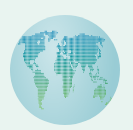Author: Marisa King, Secretary, ARL Section, IFLA, New Zealand
While reading through the latest country trends reports provided by Academic and Research Libraries (ARL) Section members from across the globe, three words come to mind: Open, open and open.
In fact, I can’t put it better than the writer of this abstract for ARL’s upcoming Satellite Conference:
Twenty years after the start of the open access movement, the scholarly communication ecosystem is rapidly evolving into an open paradigm, and we can easily imagine a not-so-distant future in which open scholarship is the norm.
(For more information on the conference, see https://www.eur.nl/en/library/ifla/inclusiveness-through-openness)
Every year, ARL’s twenty section committee members provide a summary of the most important issues and trends that are occupying the minds of academic and research librarians in their country. There is a wealth of diverse information contained within these reports and providing a “summary of the summaries”, as I am attempting to do in this blog, is a challenging but stimulating task.

Let’s start with transformative agreements, an important step towards a fully open access model in academic publishing.
Many examples of transformative agreements are referred to by ARL members in their reports. These agreements are often negotiated on behalf of many institutions by a national association. For example, the Canadian Research Knowledge Network, representing 81 research institutions, has been actively negotiating transformative agreements on behalf of members e.g. Sage. Other examples are evident in Finland, Germany, South Africa and Australia.
Much is also happening in the broader field of open scholarship. For example, the Association for College and Research Libraries in the US has set itself a strategic goal of supporting an “accelerated transition” to more open and equitable systems of scholarship, while national open scholarship policies and practical guidelines have been drafted in Finland (https://avointiede.fi/en/policies). Much is also happening to support open scholarship at a grassroots level. Open science and open research toolkits have been created in Estonia and Australia; library users in Bangladesh are being educated about the benefits of using open access resources; and workshops, conferences and symposiums supporting the adoption of open science are ongoing at both an institutional and national level in Botswana.
The concept of open and FAIR (findable, accessible, interoperable and reusable) data is also receiving its share of attention. In Denmark, the rollout of institutional policies and support for data stewardship and research data management is a major trend. And various research data services have been rolled out in Hong Kong’s academic libraries, supported by universities.
Now, let’s take a step away from the “open” paradigm to consider some of the other issues and initiatives that are top of mind for the world’s academic and research librarians.
On the technology front, moves are underway in Denmark, Hong Kong and Estonia to develop a single common library system to unite academic and research libraries across countries. In some cases, new technologies also feature in staff development programmes; librarians in Botswana, for example, are learning the finer points of data wrangling in Open Refine, while topics like cybersecurity and the GDPR (the EU’s new data protection law) are on the staff development menu in Estonia.
Moves are also afoot in some countries to develop more inclusive library services. In New Zealand, for example, there is a focus on providing library services that are relevant to indigenous (Māori) students, and working towards the broader goal of decolonising libraries and communities.
Among these many new developments, the usual suspects of managing costs, providing effective leadership, managing physical spaces effectively, building staff capacity, and promoting digital and information literacy also feature in the list of country trends provided by ARL members.
And remember digitisation? The aftermath of the COVID-19 pandemic in Germany has seen greatly increased digitisation in academic libraries, along with more virtual consulting and online seminars for library users. And France’s Bibliothèque Nationale plans to set up new premises in the city of Amiens in northern France to develop a National Newspapers Repository providing storage, restoration and digitization capacity, along with on-site services.
Whatever conclusions we may try to draw from these many and diverse trends, one thing is for sure. It’s an exciting but challenging time to work in the academic and research libraries sector.
Marisa King
Secretary
ARL Section, IFLA